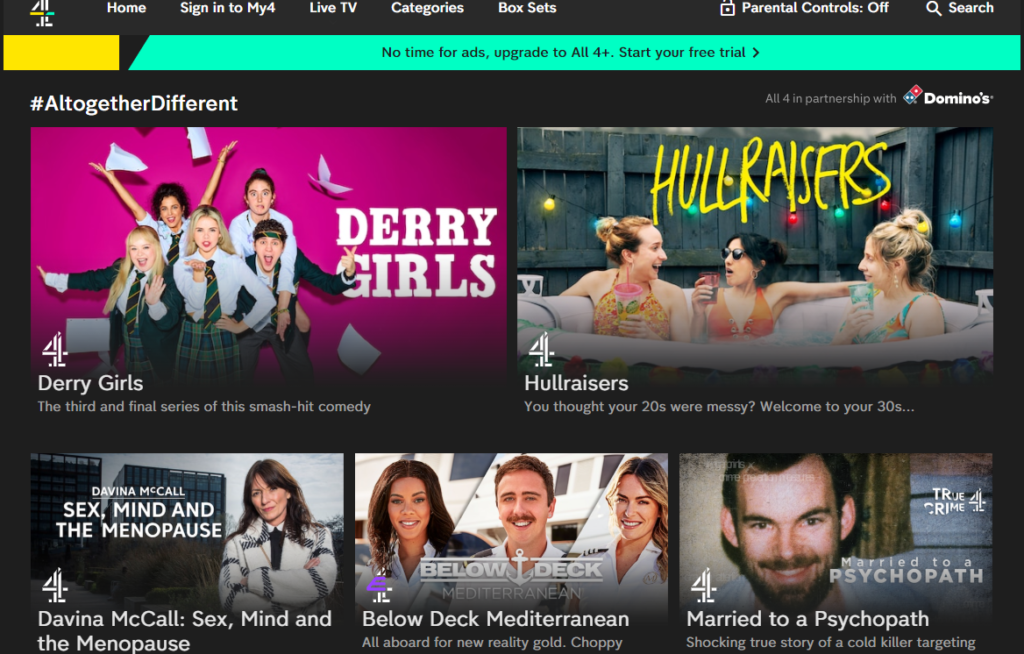Channel 4 Privatisation: Will Channel 4 be sold off to the Highest Bidder ?
The proposed process of privatizing Channel 4 were formally announced this week. There’s plenty of opposition from British media industry current management and a large number of Conservative MPs. However the Government’s large majority will probably be enough to see this through.
Why does the Government want to privatize the broadcaster?
The Government has announced that it plans to privatize Channel 4, the publicly-owned broadcaster. There are a number of reasons why they believe this is the best course of action for the company and for the UK economy as a whole.
- First and foremost, selling Channel 4 will raise money for the government. This is an important consideration at a time when public finances are tight and every penny needs to be accounted for.
- Second, privatization will free up funding that can be put towards other projects or companies who are not able to afford it themselves. This is especially important given the current financial climate and the need to support British businesses.
- Third, there is evidence that privately-owned broadcasters can be more profitable and efficient than those which are publicly owned. Channel 4 has been struggling in recent years, with losses totalling £150 million in 2014 alone. Privatisation could help turn this around and make the broadcaster more sustainable in the long term.
- Fourth, there are concerns that if Channel 4 does not undergo privatization, it may eventually be forced into closure by government decree. This would have a negative effect on both the broadcaster itself and on UK economy as a whole.
Finally, some people think that selling off Channel 4 is a step too far and that it should not happen. However, it is important to remember that this is a decision for the government to make, and they are entitled to change their mind if they so choose.
Who owns Channel 4?
Channel 4 was created by Margaret Thatcher’s government in 1982. It is owned by the Government, which is a public body. The chief executive of Channel 4 was alerted to the government’s plans through a phone call. The announcement was made in an all-staff email, with no quotes from DCMS officials. “Some within the organization share that view too, with chief content officer Ian Katz, whose natural tendency is to be provocative.”

C4 has sent a document to the government in order to avoid privatization. C4’s top team can help ensure any new quota around in-house production is kept to a reasonable level. Channel 4 could retain its current voluntary 50% quota of non-news and current affairs programming, or it could be made compulsory. Channel 4 must decide whether to risk a government backlash by pushing for more editorial independence, or remain as close to their status quo as possible.
What happens now?
Now that Channel 4 has announced its intention to sell, there are a few things that will happen in the coming months. First, the Department for Culture, Media and Sport (DCMS) and Channel 4 will work together on a new strategy for how to keep TV free. This process is likely to take 18 months or more.
Second, Channel 4 is committed to staying in the UK and will release a White Paper in April outlining its proposed sale. The broadcaster is expected to be sold before 2024, although this could end up taking much longer if there is significant opposition.
Finally, it’s important to note that this decision does not mean the end of Channel 4. The broadcaster has assured its viewers that it will continue providing quality programming–whatever happens next.
What is Channel 4?
Channel 4 is a British public service broadcaster which was established by Margaret Thatcher’s government in order to challenge the BBC, BBC Two, and ITV. It is one of most popular broadcasting companies in the UK with more than 30 million viewers per week. Channel 4 is funded by a public-owned company but it is not completely funded by the government. In fact, they generate most of their income from TV advertising. The channel doesn’t make any profit because it’s non-profit, so they rely on TV advertising to generate income. It’s certainly one of the most popular UK channels and is especially popular abroad. Like most UK TV it’s not accessible overseas unless you use a VPN to hide your location.
The surplus at the end of 2020 was £74m, which would be reinvested in commissioning programmes. However, there has been some discussion about privatising Channel 4 because it’s seen as being inefficient and uncompetitive compared to other broadcasters like ITV and Netflix. Privatisation is when ownership shifts from state-owned assets to private sector entities and Channel 4 will be relying on more capital, including private sources.
Channel 4 might be able to improve their competitiveness in the market and efficiency through privatisation but there are also risks involved such as job losses, slowdown of the creative economic sector, and loss of £2bn . On the whole though, it seems that Channel 4 will benefit from having a private sector owner as they will be able to improve their technology and programming.
What will happen to Channel 4 after it is Privatised?
Channel 4 is to be privatised, meaning that it will be sold off to the highest bidder. This could have a significant impact on the channel, as it may face cuts in its budget of up to 50%. This would force Channel 4 into a commercially-focused model, which might mean that it has to cut back on important content that does not bring in much income from advertisements.
Channel 4 is a key commissioner of TV content, and it sees itself as part of the government’s levelling up ambitions outside London. If it moves to private ownership, this could change significantly. Most people outside the Government are also not very keen on this option as Channel 4 is a great UK TV station that’s working very well. It may allow access to more UK TV everywhere outside the UK though this will certainly be at a cost.
Who are the Potential buyers for Channel 4?
There is a lot of interest in purchasing Channel 4, with possible bids from ITV, Discovery, Sky and more. Bids from Netflix and Amazon are also possible as well as Murdoch’s own bid to buy C4. With a possible £1 billion price tag, it’s likely the government is fighting an uphill battle with commercial buyers. The more strings attached when buying Channel 4, the less attractive it becomes to commercial buyers.
“Trashing this uniquely British legacy” is how the Liberal Democrats describe the sale of Channel 4. Jeremy Hunt was not in favour of selling off Channel 4 when he was in office, and still isn’t now. TV stations especially ones which are so linked to a specific country can be difficult to promote. Online markets are difficult in the entertainment media with all the problems of licensing and geo-blocking. When most of the world needs a VPN to unblock TV stations like Channel 4 it limits your market somewhat.
The Conservative Party chair of the culture select committee claimed that Channel 4 was being sold off as a result of “revenge” for their coverage of Brexit. The Conservatives believe that Channel 4 has been biased in the past, and have attacked the prime minister on multiple occasions. The government faces opposition from the House of Lords. The government must also contend with public opinion
What is the government’s motivation for selling Channel 4?
There has been a lot of discussion lately about the government’s plans to sell Channel 4. Some people are in favor of the sale, while others are not. But what is the government’s motivation for wanting to sell Channel 4? Some say that the status quo is no longer an option, especially in today’s media landscape. With so many options available, it is becoming more and more difficult for channels like Channel 4 to make money. So the government is hoping that by selling Channel 4, they will be able to create about 1,000 jobs in the UK.

However, some people are concerned that this will have a negative impact on British creativity. Many popular shows like Broadchurch and Peaky Blinders are produced in Britain, and if Channel 4 is sold off to the highest bidder, there is a risk that these programs will no longer be made. Labour is also concerned about the impact on jobs and British creativity. They feel that it is important to protect Channel 4’s legacy and ensure that jobs in the creative sector are protected.
The Liberal Democrats have similar concerns about using public funds to finance a private corporation. They believe that it would be better for the money to be invested back into Channel 4 so that it can continue to produce quality programming. The government seems hell-bent on trashing Channel 4’s legacy and undermining jobs in the creative sector. It is important for us to stand up and fight for our rights!
How will privatisation affect Channel 4’s programming and employees?
Channel 4 is set to be privatised, but it’s not yet clear how this will affect the programming and employees of the company. Some argue that privatisation could lead to higher costs in human resources, which would cause an increase in demand for capital. This could potentially have a negative effect on Channel 4’s programming and its ability to employ talented individuals.
Others maintain that privatisation won’t be affected by taxes, as the channel is currently funded through advertising revenue. In this case, changes in viewing rates or the impact on income from ads would be the only factors influencing Channel 4’s profitability post-privatisation.
It’s also worth noting that Channel 4 has less impact on demand than the Royal Mail and would not be impacted by changes in supply. So while there are many possible effects of Channel 4’s privatisation, it’s difficult to say exactly what will happen to this UK TV channel without knowing more about how it will be carried out.
One thing is for sure: the government believes that privatising Channel 4 would improve creativity within the broadcasting industry as a whole. With so much at stake, we can expect a lot of debate over this issue in the coming months and years.
How will privatisation affect viewers of Channel 4?
There is a lot of speculation about how privatisation will affect viewers of Channel 4. Some people are concerned that the channel may be bought by a commercial broadcaster like ITV, which would mean less diverse content and more ads. Others worry that the channel may be shut down altogether and replaced with another publically-funded broadcaster.
At this point, it’s hard to say exactly what will happen. The government has said that it plans to reinvest the £74 million surplus into new content, but it’s not clear what form that content will take or who will produce it. It’s also possible that the new owner of Channel 4 will keep the same programming line-up and just increase ad revenue.
Only time will tell how privatisation will affect Channel 4 viewers. In the meantime, we can only speculate about what might happen.